Iran Press Watch: The Baha'i Community |
- Irish government “extremely concerned” at “worsening oppression”
- India’s Former Deputy Prime Minister LK Advani and other Prominent Indians Appeal to Iran for Justice
- Iran’s Other War
- Iran’s human rights record condemned by United Nations
| Irish government “extremely concerned” at “worsening oppression” Posted: 22 Dec 2010 05:41 PM PST
Question 268: To ask the Minister for Foreign Affairs if he will support the campaign of the Baha'i international community for the release of seven former members of the Yaran group in Iran (details supplied) and all the Baha'is who are imprisoned throughout Iraq; and if he will make a statement on the matter. [47860/10]
As the Deputy will be aware from my previous replies on this matter, I am very conscious of the discriminatory treatment of the Baha'i community in Iran and of the particular case of the seven former Baha'i community leaders (known collectively as the Yaran), who have been in detention since 2008 and were sentenced to 20 years' imprisonment in August 2010, with this sentence subsequently being reduced to ten years. I have received a copy of the recent letter sent by the Baha'i community in Iran to the Head of the Iranian Judiciary, Ayatollah Larijani, asking for the release of these detainees, a call which I fully support as I know do many Members of this House. I have personally raised the case of the seven imprisoned Baha'i leaders, and matters relating to human rights and religious freedom generally, directly with the Iranian authorities at the highest levels, including with the Iranian Foreign Minister in June this year. In addition, my Department frequently conveys my concerns on such matters to the Iranian Ambassador here. Officials of my Department also meet regularly with members of the Baha'i community in Ireland. The EU High Representative issued a strong declaration on 12 August, which Ireland fully supported, expressing the EU's serious concern about the sentencing and calling for their immediate release. The declaration drew attention to Iran's obligations to guarantee freedom of religion under the International Covenant on Civil and Political Rights, to which Iran is a signatory. It also called on Iran to put an end to the persecution of the Baha'i community. This follows an earlier EU statement on 12 January, also strongly supported by Ireland, asking that the trial respect international standards. In the event, there was no independent observation of the proceedings and even the defendants' lawyers, to whom the Baha'i had very limited access during their detention, had some difficulty in obtaining entry. There appears to be no evidence that the seven Baha'i have done anything to incur the displeasure of the Iranian authorities other than practice their faith. The Government is extremely concerned about this sentencing and other signs of the continued and indeed worsening oppression of the Baha'i minority, including reports of the detention of other Baha'i community members, the denial of education and the violation of property rights. It would appear that the Iranian authorities are persecuting a minority for their religious beliefs and that they are actively trying to suppress that faith. Ireland will continue to call strongly for the immediate release of the seven Baha'i leaders and the end to the persecution of members of this faith in Iran, including through bilateral contacts, with our EU partners and at the UN. — Source: http://www.kildarestreet.com/wrans/?id=2010-12-16.1365.0 |
| Posted: 22 Dec 2010 05:34 PM PST
The persecution of Baha’is has increased since the establishment of the Islamic Republic in Iran. This present wave of systematic attacks on the Baha’i leadership came in 2008 when the seven former leaders were arrested without charges and kept in temporary detention for nine months. As an afterthought they were charged with espionage and threat to national security and insulting religious sanctity.
In addition to the former Deputy Prime Minister, other eminent Indians have raised their concern against the handling of the case of the seven Baha’is currently facing a ten-year prison sentence without the due process of law. The former UN special Rappatouer on Housing Rights said that "There is a contradiction of the unjust treatment of Baha’is and the minorities in Iran with the state not according them the same rights and means of redress that it is championing around the world." Mr. Kothari was addressing Iran's position on the treatment of Muslims in Palestine and other places around the world. He went on to say that in its own country Iran continues to violate the rights of the minorities including the Baha’is. The contradiction stems from Iran's own adoption of the Universal Declaration of Human Rights not to mention its ratification of the International Covenant of Civil and Political Rights as well as Economic, Social and Cultural Rights. "We hope that Iran will make its internal policies, law and administration, consistent with its International Human Rights commitments and the standing that it wants in the International community as a civilization with long history of assimilation of different Faiths," Kothari remarks. Dr. Amitabh Kundu, Professor of Economics at the Centre for the Study of Regional Development and former Dean of the School of Social Sciences at Jawaharlal Nehru University endorsing the Open letter of the Baha’i International Community to the Head of the Judiciary in Iran, emphasizes that "this mistreatment [of the Baha'is] also epitomizes the injustices being wrought against scores upon scores of their fellow citizens who are condemned to suffer merely because they yearn to be liberated from the prejudice and religious fanaticism that have so undermined the advancement and ravaged the well-being of their society." Dr. George Verghese, Senior Columnist and visiting Professor at the Centre for Policy Research says "I have supported the Baha’i movement and I will always continue to do so." In defiance of all reason, the prisoners are now in the third year of what is shamelessly termed a "temporary" detention –leaving them without any option of bail, and in turn, any prospect of freedom. Justice demands no less than the immediate release of these seven Baha’i leaders. — also see India PRWire: http://www.indiaprwire.com/pressrelease/other/2010121772045.htm |
| Posted: 22 Dec 2010 03:15 PM PST December 9, 2010 – by Michael J. Totten Iran's most repressed religious minority is also its largest. Members of the community are routinely imprisoned, frequently executed, banned from universities, and ruthlessly repressed economically. Tens of thousands have been murdered by one regime after another. The current government—the Khomeinist "Islamic Republic"—goes farther than any other by vowing to crush these people wherever they live and erase them from the face of the earth. There are only six or seven million in the entire world, and their spiritual home is in Israel. I am not, however, referring here to the Jews, but to the Bahais. [In the picture used on the right, the Shrine of the Bab is coverd for maintenance work. please see this picture for the Baha'i Gardens with the golden dome of the Shrine of the Bab] Their world headquarters is in Israel, and they came during Ottoman times from Persian lands. The nation-state of one of the world's oldest religions now hosts the holiest site of one of the newest, and the nation where the Bahai Faith was born vows to destroy the nation where the Bahai Faith had to migrate. The strikingly different treatments of these people by Iran and by Israel infuses the looming showdown between the Middle East's two most powerful countries with even more moral clarity than it already had. The U.S. State Department rates Iran one of the worst violators of religious freedom in the world, particularly for its repression against the Bahais. "Bahai religious groups reported arbitrary arrest and prolonged detention," says its most recent annual report, "expulsions from universities, and confiscation of property. During the reporting period government-controlled broadcast and print media intensified negative campaigns against religious minorities, particularly the Bahais." Even the United National General Assembly recently condemned the Iranian government on similar grounds. Around 300,000 Bahais are still in Iran, ten times the number of Christians and Jews there. Two million or so live in India. There are many more in South America and Africa. Only 150,000 or so live in the U.S., but the faith has been growing in Eastern Europe since the fall of the Soviet Union. Most worship in their houses, but there are community centers in places where enough Bahais are concentrated. There's a house of worship on each continent. North America's is in Chicago. South America's is in Chile. Asia's is in Delhi. But the world spiritual center for the Bahai faith–its "Jerusalem," so to speak–is in Israel on the slope of Mount Carmel in Haifa. Rob Weinberg gave me a tour. He's a Bahai from the UK and has been serving there since late fall in 2009. And he told me the story of how his faith began in Persia in the middle of the 19th century. "It was a time of great expectation," he said, "when the Muslims were awaiting the coming of a promised great teacher. Also, in the Christian world, in the West, there were expectations about the return of Christ. There was a great deal of ferment."
In 1844 a young man named Mirza Ali Muhammad, a merchant in the city of the Iranian city of Shiraz, said he was the herald of a new revelation from God. He announced the coming of the new great teacher. "He called himself the Báb," Weinberg said, "which means 'the gate' in Arabic, and his teachings began to spread throughout Persia. Thousands upon thousands of people responded and were very attracted to the teaching. He said a new day had come, a day when religions would become united, when people would recognize their oneness, when the equality of men and women would be established." One of his first followers was a poet who removed her veil in public, something unheard of in that day, though it was perfectly normal before the Khomeinists took over in 1979. "There were reports of a man cutting his throat," Weinberg said, "because he was so shocked at the audacity of this act." This new religion alarmed the authorities as it spread. Shia Muslims were abandoning Islam and becoming Bábis, followers of the Báb. Pogroms followed, and 20,000 were executed, many in horrible ways. They were executed not because they were criminals, nor for political reasons. They were executed because they were heretics. The Báb himself was publicly executed in 1850 in Tabriz. Tabriz is an Azeri city. In Baku, the capital of Azerbaijan—the now-sovereign Azeri land detached long ago from the Persian Empire by Czarist Russia—is a statue of a liberated woman discarding her veil. It was erected almost a century ago, and the liberation has held. I spent a week in Azerbaijan and saw only three or four veiled women during my entire stay. Hardly any man there finds unveiled women shocking or scandalous, certainly not enough to cut his own throat over it. There are no more veiled women in Azerbaijan than there are in Seattle. The government, though, isn't run by totalitarian mullahs. The local Bahais, Jews, Christians, and Zoroastrians are left alone. "The main message from the Báb," Weinberg said, "was that there was about to be a great teacher. Among the Báb's most prominent followers was a nobleman whose name was Mirza Hussein Ali. His was the son of a courtier in the Shah's court, and in 1852 he was imprisoned for being a follower of the Báb. He was in an underground dungeon in Tehran, the place where the worst criminals were thrown and left to die. And there he had an extraordinary revelation where he realized he was the one that the Báb had foretold. And for the next forty years, the Báb's teachings came through him. He was channeling all these ideas about world order, global civilization, equality, the unity of mankind, how to organize human affairs–things to do with personal spirituality, but also justice, social organization, and so on." He took the name Bahaullah, which means glory of God. And because of his high rank in the Shah's court, he was banished rather than executed. He lived in Baghdad for ten years before moving on to Ottoman Turkey and Bulgaria. And in 1868 he was banished to Acre, the now-Israeli city of Akko, and imprisoned there.
"They kept him in the citadel for two and a half years," Weinberg said, "but as people started to realize that the Bahai were good, honest, peace-loving people, restrictions on them were lifted and they were free to travel in the area. Bahaullah passed away in 1892." Acre, or Akko, is just north of Haifa. The cities are within each others' sight lines. Bahaullah could see Haifa and Mount Carmel across the bay from the prison, and he traveled there after he was released.
He wanted Mount Carmel to become the spiritual seat and administrative center for the Bahai Faith, and he wanted the Báb's remains secretly smuggled out of Persia and buried in a shrine on the side of the mountain. That's exactly what happened sixty years later, and Mount Carmel has been the center of the Bahai world ever since. The first building constructed there was for the archives. "It's a copy of the Parthenon in Athens," Weinberg said. "The idea was to find an architectural style that would be beautiful for thousands of years. They assumed that since the Parthenon has been considered beautiful for thousands of years, it would likely be considered beautiful for thousands more."
. The Bahai Faith is a modern religion with neither clergy nor rituals. It is administered by officials elected every five years. They believe in non-violence and the brotherhood of mankind. You'd have to be a real bastard to be seriously offended by them, and some kind of a fascist to think they deserve to be persecuted. "The fundamental teaching of the Bahai Faith is that there is one god and that he is completely unknowable," Weinberg said. "We are limited in our understanding, so throughout our history humanity has been guided by it's a succession of great teachers. When we look through history we have, every thousand years or so, extraordinary figures like Moses, Jesus, Mohammad, Buddha, Krishna, and so on. They bring a message, they bring teachings, and their teachings become universal and give rise to new civilizations. So there is essentially one religion. There aren't all these religions in competition with each other for everyone's soul. There is one religion, and it has been progressively revealed to humanity throughout history through these great teachers." If you want to convert, it isn't difficult. "If you want to become a Bahai," he said, "all you're doing in a sense is making an internal recognition that there is one god, there is one human race, there is really only one religion that has been taught through the ages by different teachers, and that Bahaullah is the latest of these great teachers. There's no ritual or baptism or anything like that." And yet they are viciously repressed in the land they come from. "Ever since the time of the Báb," he said, "the Bahais in Iran have been persecuted." "Even under the secular shahs?" I said. "Less so then, but, yes," he said. "At different points in history the shahs wanted to appease the mullahs, so from time to time he would allow them to do stuff to the Bahais." "'Stuff' meaning what, exactly?" I said. "Their cemeteries were demolished. Gangs were let loose on Bahais in the streets. People were killed. Bahais have always been slandered. Bahai school kids have been told they're unclean.' "It sounds like Bahais have been treated worse than Jews in Iran," I said. "In Iran," he said, "I would say so, yes." "Is that because Christians and Jews are considered People of the Book by Muslims while Bahais are not?" "Bahais are also People of the Book," he said, "because we consider the Bahai revelation following the same line as the Abrahamic faiths." "But Bahais aren't named by Islam as People of the Book," I said. "Because we came after the Koran," he said. "We came after Mohammad. The traditional interpretation says he was the last prophet, that there can't be any after him. So when the Báb and Bahaullah come along and say they're being divinely inspired and guided it becomes a big theological issue. Since 1979 it has been the official government policy to blacklist and persecute the Bahais. Over 200 Bahais were executed under Khomeini in the early years after the revolution." Iran's Khomeinists treat everyone badly, even liberal and moderate Shia clerics who refuse to toe the regime line, but only Jews and Bahais are singled out for destruction outside Iran. "In 1991 the Supreme Leader Khamenei," Weinberg said, "who is still the supreme leader, commissioned a memorandum which deals with the Bahai question. It says Bahais must be blocked from progressing in careers and social life. Employees who reveal that they're Bahais should be dismissed from their jobs. School children should be dismissed from schools. Bahais should be banned from universities. They should be kept at the lowest levels of subsistence and earning. And more ominously, it also says Bahais should be rooted out around the world, that their culture should be destroyed. It's a formal government policy to eliminate every trace of the Bahai Faith and the Bahai community everywhere in the world." "Not just in Iran," I said. "Not just in Iran," he said. "This document says the Bahai community should be destroyed around the world. They've been trying to enact this policy, and in the early days of the revolution they were executing Bahais and imprisoning them. Bahais were disappearing, never to be seen again. There was a huge outcry. The Bahai Faith has spread all over the world. There are Bahais in every country, and various governments around the world will stand up and speak out for the human rights of the Bahais. There was such an outcry that Iran realized it couldn't get away with it. So instead they've been applying a slow strangulation which is still going on today. Cemeteries are still being destroyed. People are still losing their jobs. Students still are not allowed to study. Bahais are picked up, arrested, and imprisoned, and only released on bail if they put up the deeds to their properties." Israel's relationship with the Bahais could not be more different. Few Bahais live there, but that's not because of pogroms, state-sponsored repression, or bigoted attitudes from Israelis or Arabs. The Bahais just decided–before the modern Israeli state even existed–not to promote themselves there. 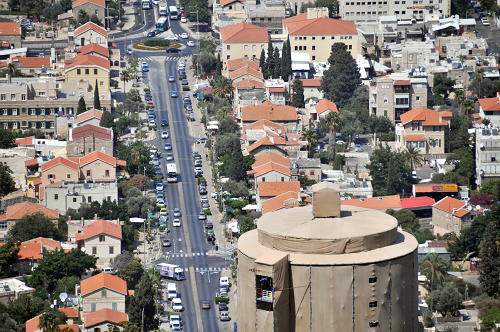 Haifa's German Colony from the Bahai gardens. The shrine of the Báb (lower right) was covered when I was there. "This goes back to the time of Bahaullah himself," Weinberg said. "He said the faith shouldn't be taught in this area." "Why is that?" I said. "I think there's wisdom in it," he said and laughed. "It was a political decision?" I said. "I can't speak for Bahaullah," he said and laughed again. "You have a lot better sense of what he was thinking than I do," I said.
"He was probably aware of the sensitivity of this land," he said, "the political factions, religious tensions, and all the rest of it. I think that out of respect and out of safety it was considered the wisest thing to just have our holy places and world center here without making any attempt to teach or promote the faith here. If people want to know about it they can come here. They can see the gardens. They can go on the Internet. They can read books. They can go to the library. But there is no Bahai community as such in Israel. We do, however, have a relationship with the city of Haifa, the municipality. All our buildings and developments are done properly and legally with the city."
"Is there any tension?" I said. "Not that I'm aware of," he said and laughed a third time. The idea of tension between Bahais and Israelis is a little ridiculous, but I had to ask just to be sure. "Was there any tension with the British or Ottoman authorities after this place was established?" I said. "The Bahais were initially prisoners, of course, under the Ottoman authorities," he said. "Bahaullah's son was still a prisoner of the Ottoman Empire until the Young Turks revolution set political and religious prisoners free in 1908. Between 1914 and 1918 their lives were in danger because the Ottoman pasha in Palestine threatened to have Bahaullah's son executed, but the Ottomans were driven out by the British. After the First World War during the British Mandate, Bahaullah's son knew there was going to be a famine, so he encouraged Bahai landowners around the Galilee to store grain. He fed a lot of people in this area during the First World War, and when the British came in they gave him a knighthood for his service to the people of Palestine. So the Bahai's relationship with the British was fine. And the Bahai's relationship with the State of Israel is fine, as well." We walked the grounds of the gardens. It's an extraordinary place, and I said so.
"It is very beautiful," he said. "People ask questions about what's symbolic, but it's really just about beauty. It's about creating a beautiful environment so that the pilgrims who come can prepare themselves for the shrine. The number nine is repeated in some of the designs. In the original Arabic numerology, Baha equals nine, and it means glory." I was tempted to ask him what he thought his Israeli hosts should do about the Iranian regime that threatens them both, but it did not seem appropriate. "We're not political," he said. "We don't get involved with political discussions or disputes. Bahais everywhere in the world obey the laws of the land in which they live, so naturally we've never had any problems with the British or the Israelis." The Iranian government's stated goal of destroying the Bahai Faith everywhere in the world is, of course, impossible, but an apocalyptic war with Israel would, conveniently from Mahmoud Ahmadinejad's point of view, destroy the holiest sites of both the Jews and the Bahais. I don't expect anything of the sort will ever actually happen, but it would be a mistake, I believe, to assume that it can't. A repressive regime with eliminationist ambitions toward even one, let alone two, religious communities would be ferociously dangerous indeed if it possessed the weapons of genocide. "All of these things are intertwined," said Shastri Purushotma, the human rights representative for the U.S. Bahai community. "You can't separate out human rights and the nuclear issue, because the way a country treats his own people is an indication of how they will treat their neighbors." ****** Message from Michael:
— |
| Iran’s human rights record condemned by United Nations Posted: 21 Dec 2010 09:29 PM PST
By a vote of 78 to 45, with 59 abstentions, the UN General Assembly confirmed a resolution that expressed "deep concern at serious ongoing and recurring human rights violations." In more than two decades of such resolutions about Iran, the vote passed with one of the highest percentages ever. The resolution specifically expressed concern over Iran's "intensified crackdown on human rights defenders and reports of excessive use of force, arbitrary detentions, unfair trials and allegations of torture," as well as its "pervasive gender inequality and violence against women," and its discrimination against minorities, including members of the Baha’i Faith. "The world community has clearly spoken. It is outraged at Iran's continued and intensifying violations of human rights," said Bani Dugal, the principal representative of the Baha’i International Community to the United Nations. Welcoming the result, Ms. Dugal noted that the resolution documents a wide range of violations – from torture to the oppression of women to the persecution of minorities. “All of this has been going on for too long, and it is high time that Iran pays heed to the call of the international community and complies with the standards of international law," she said. The resolution devoted an entire paragraph to Iran's treatment of members of the Baha’i Faith, cataloging an extensive list of recent anti-Baha’i activities. These included: "increasing evidence of efforts by the State to identify, monitor and arbitrarily detain Baha'is, preventing members of the Baha'i faith from attending university and from sustaining themselves economically, the confiscation and destruction of their property, and the vandalizing of their cemeteries…" It also expressed concern over the recent trial and sentencing of seven Baha’i leaders, saying they were "repeatedly denied the due process of law." The UN vote has coincided with a renewed protest – from numerous governments, organizations and prominent individuals – at the persecution of Iran's Baha'is. In a statement dated 17 December, Canada's Minister of Foreign Affairs, the Honorable Lawrence Cannon, reiterated his country's deep concern at the "ongoing failure of the Iranian authorities to meet their domestic and international legal obligations." "The Government of Canada stands firmly with the people of Iran against human rights abuses and discrimination, as well as ill treatment of women and minorities," said Mr. Cannon. A number of India's prominent citizens have also recently called upon Iran to respect its minorities. Among them, former Deputy Prime Minister, L. K. Advani, appealed for justice for the seven imprisoned Baha'i leaders. "The attitude of a country and a nation towards minority religion is the touchstone of how civilized a country it is," he said, on 17 December. In a debate on freedom of religion in Germany’s Parliament, also held on 17 December, members of Parliament spoke out on the situation of Baha’is in Iran. Christoph Strässer MP – human rights policy spokesman for the Social Democrats – noted that the Baha’i community, “ever since it was founded, has been dedicated to peace and tolerance…” Street campaigns about the human rights situation in Iran have been held in the German cities of Frankfurt, Wiesbaden, Mainz and Taunusstein. “We have gathered here to protest the alarming situation of Baha’is, of human rights in general and the climate of fear that exists for Baha’is, for women, for youth, for bloggers, for journalists,” said Omid Nouripour, MP for Frankfurt, speaking at the event in the city, “and we raise our voices to show the world that the people of Iran need our help.” Christian Solidarity Worldwide has also called for the release of the Baha'i prisoners. "Clearly the seven Baha’i leaders are being held solely on account of their faith," said CSW's Advocacy Director Andrew Johnston on 10 December, "and this contravenes Iran's international legal obligations." In Australia's parliament last month, members specifically referred to Iran's discrimination against, and failure to protect the rights of, minorities – including the Baha'i, Sufi, Baluch, and Kurdish communities – as well as the trial and sentencing of the seven Baha’i leaders. Reports of the 10-year jail terms previously provoked a chorus of condemnation from governments around the world – including Australia, Canada, France, Germany, Hungary, the Netherlands, New Zealand, the United Kingdom and the United States. The European Union and the President of the European Parliament also joined the protest, along with numerous human rights organizations, other groups and countless individuals. In its annual International Religious Freedom Report, published in November, the United States Department of State reported that the Iranian government's respect for religious freedom has continued to deteriorate, creating a "threatening atmosphere for nearly all non-Shi’a religious groups, most notably for Baha’is." "The U.S. government has publicly condemned the treatment of the Baha’is in UN resolutions," said the report. The most recent United Nations resolution was put forward by 42 co-sponsors and approved in a preliminary form in November by a committee of the General Assembly, also by an overwhelming vote against Iran. Special Report – “The Trial of the Seven Baha’i Leaders” The Baha’i World News Service has published a Special Report which includes articles and background information about the seven Iranian Baha’i leaders – their lives, their imprisonment, trial and sentencing – and the allegations made against them. It also offers further resources about the persecution of Iran’s Baha’i community. The International Reaction page of the Baha’i World News service is regularly updated with responses from governments, nongovernmental organizations, and prominent individuals. The Media Reports page presents a digest of media coverage from around the world. — |
| You are subscribed to email updates from Iran Press Watch To stop receiving these emails, you may unsubscribe now. | Email delivery powered by Google |
| Google Inc., 20 West Kinzie, Chicago IL USA 60610 | |

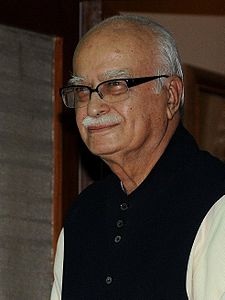


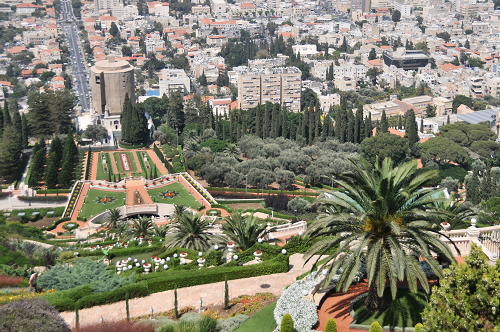
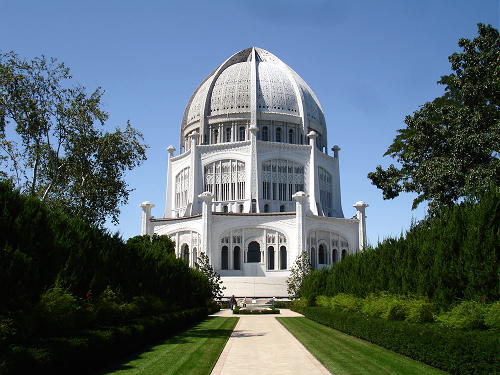
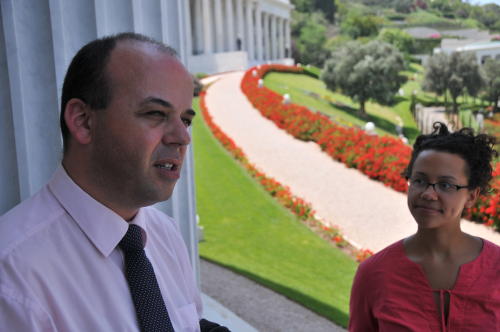
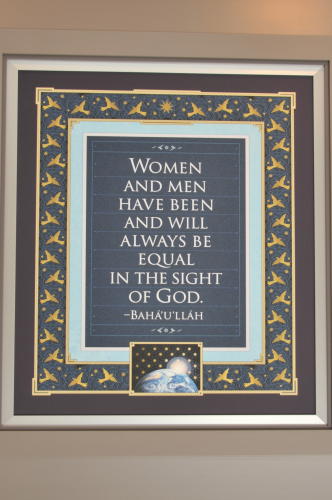
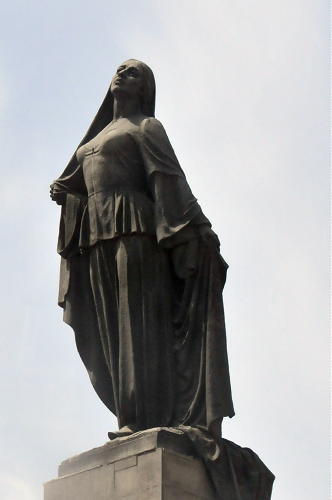

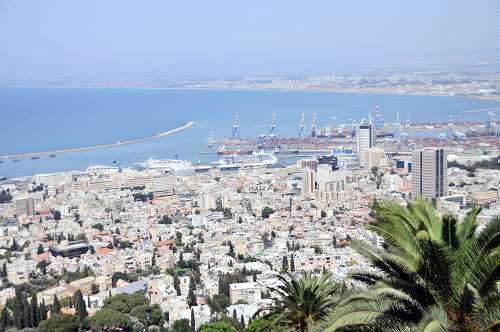
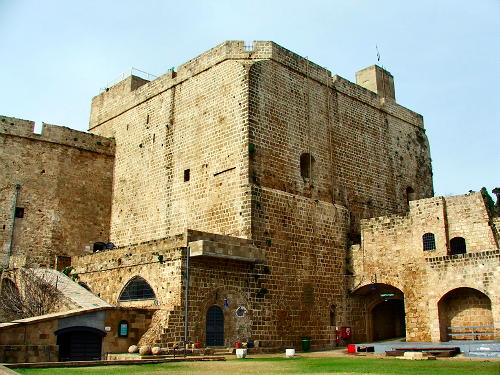
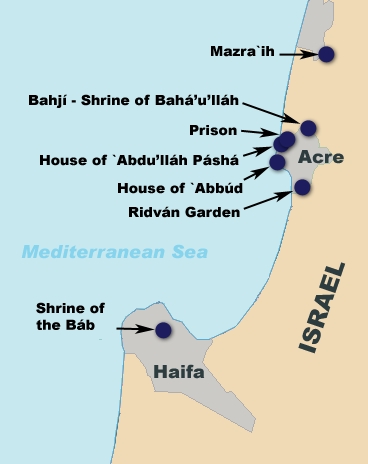
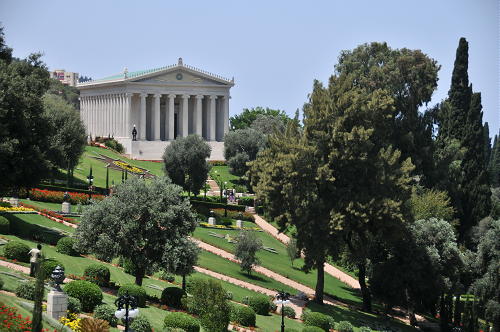
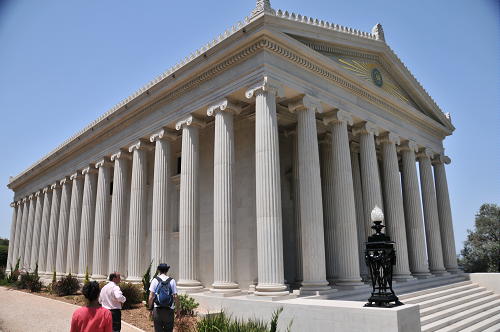
![Bahai-Building-Inside [Interior of the Office of Public Information, Baha'i World Centre, Haifa]](http://www.iranpresswatch.org/wp-content/uploads/2010/12/Bahai-Building-Inside.jpg)
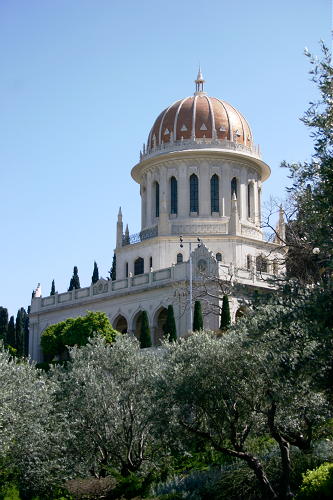
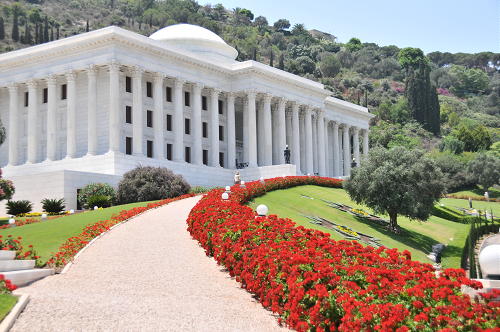
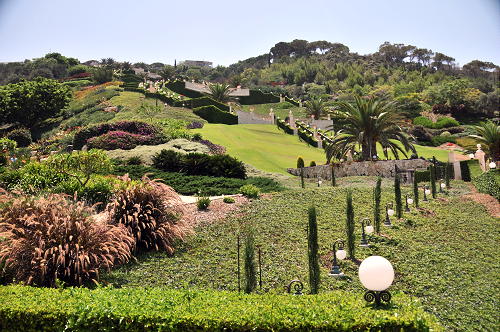
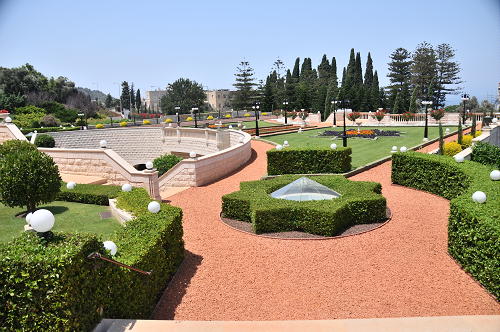

No comments:
Post a Comment